I had the chance to comment on the recent breaking news story about a fake university set up by ICE aimed at deporting undocumented immigrants. Thanks to American Bazaar!
Huffington Post: New Jersey’s First South Asian Woman Mayor Is Breaking Boundaries
Happy to be part of this great story on the historical election of Sadaf Jaffar as the first Muslim South Asian woman mayor in the U.S. Here is a selection from the story and you can check out the full piece here!
“Jaffer is part of a new wave of politically active South Asian Americans in her state. As New Jersey’s South Asian American population increases, many U.S.-born young professionals from immigrant families have started campaigning ― and winning ― positions as mayors, state legislators and township council members.
Jaffer’s appointment as mayor is particularly is significant against the backdrop of South Asian women’s history in the U.S., according to Amy Bhatt, a University of Maryland, Baltimore County, professor whose research focuses on immigration, gender and South Asian American communities. Bhatt is also a key leader at the South Asian American Digital Archive, which strives to document South Asian American history.
Beginning in the 1870s, Congress passed several laws aimed at restricting immigration from Asia. One of the ways politicians tried to block newcomers from staying in the U.S. was to make laws targeting the migration of women in particular. Simultaneously, anti-miscegenation laws prevented Asian workers from marrying people outside their own communities. Ultimately, these restrictions made it difficult for people of Asian descent to permanently settle in the country.
These discriminatory laws largely stayed in place until 1965, when national-origin quotas were abolished and Asian-Americans started immigrating to the U.S. in larger numbers.
Despite their increasing population, South Asian immigrants have historically been reluctant to become politically active in the U.S., Bhatt said, preferring instead to try to “blend in.”
TIE DC Book Event
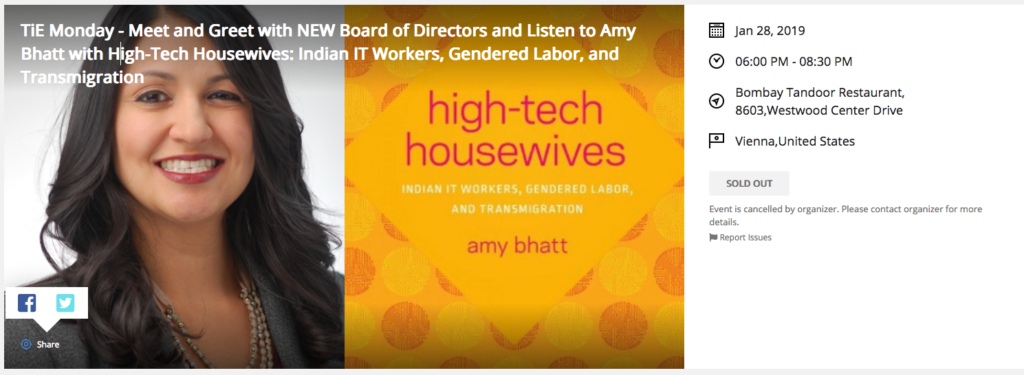
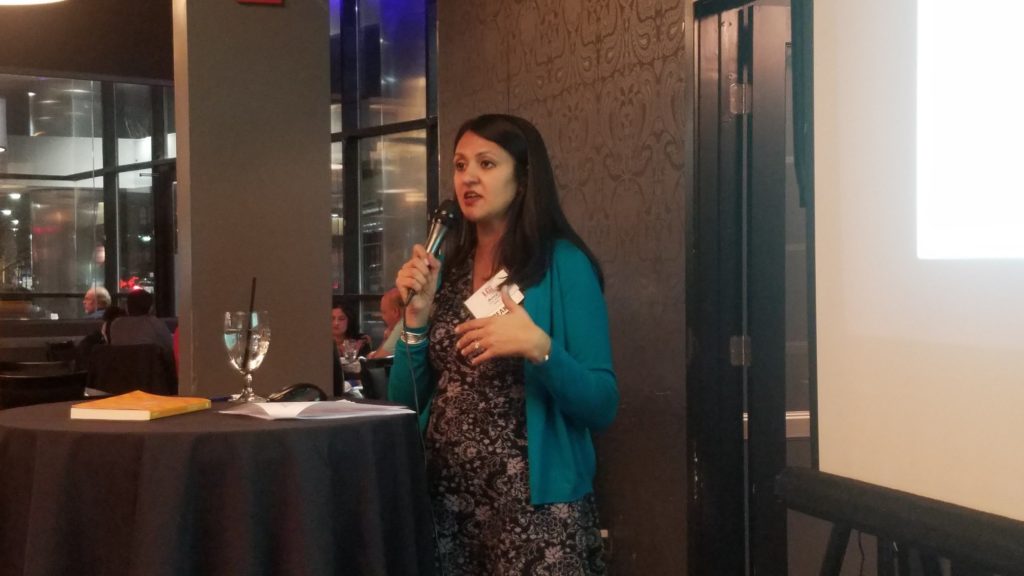
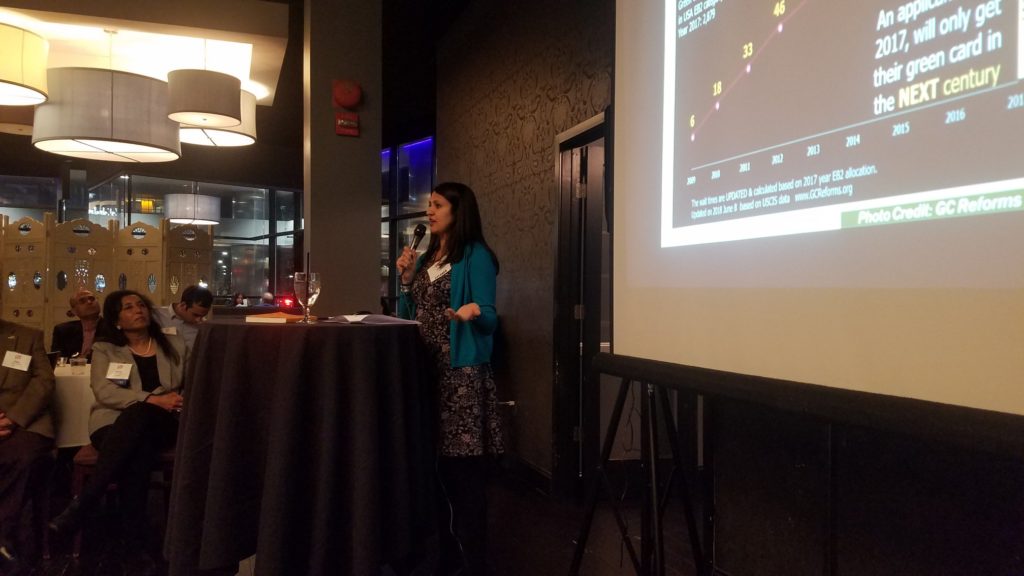
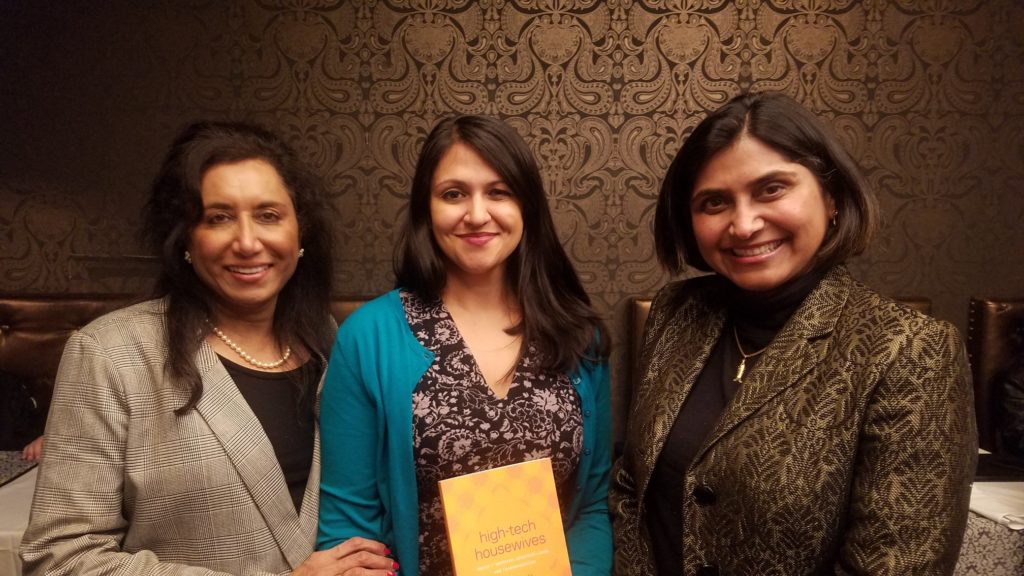
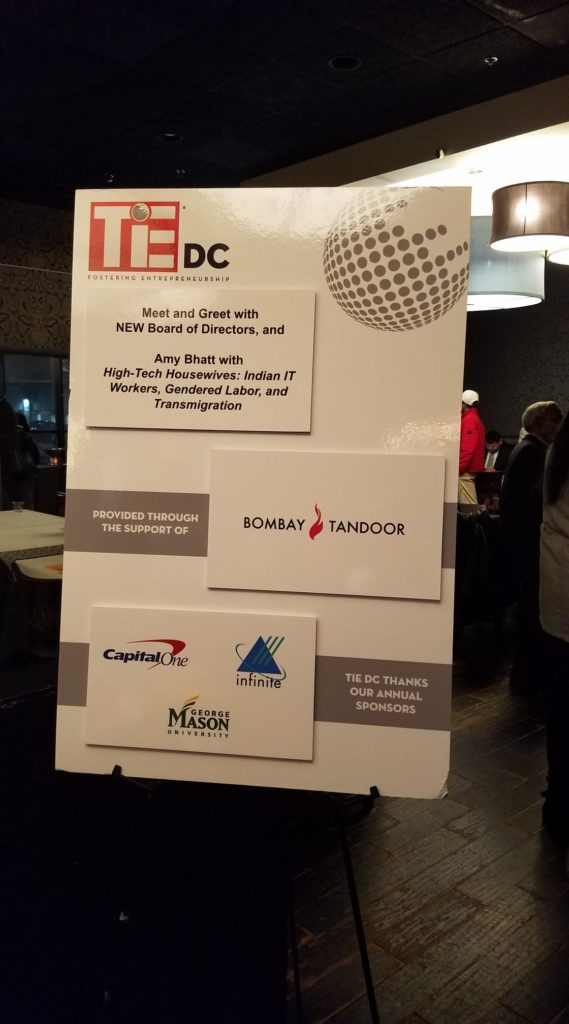
Quartz News: The immigration battle that might push H-1B families to self deport
A huge thank you to Preeti Varathan for this excellent deep dive into how immigration restrictions are hurting H-1B families on Quartz News. Check out the video link below for the full story!
https://qz.com/1526885/the-immigration-battle-that-might-push-h-1b-families-to-self-deport/
American Bazaar: H-4 and H-1: Time for Indian immigrants to speak up on immigration policy, says author Amy Bhatt
I had a great interview with Zofeen Maqsood about the challenges facing the Indian immigrant community and also how High-Tech Housewives adds to the conversation. Check out the full story here!
Dresher Center talk on YouTube
Check out the full recording of my talk on December 5 at UMBC!
https://www.youtube.com/watch?v=RMmGOs_hWnQ
High Tech Housewives at UMBC
On December 5, I had the great pleasure of being part of the Dresher Center for the Humanities Fall 2018 Humanities Forum speaker series. The event had a great turn out and I presented on High-Tech Housewives and my new research.
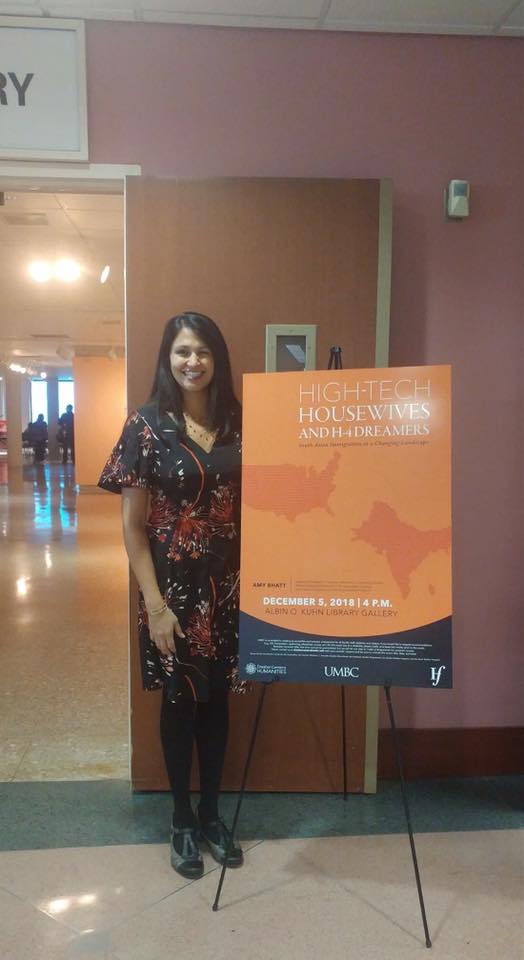
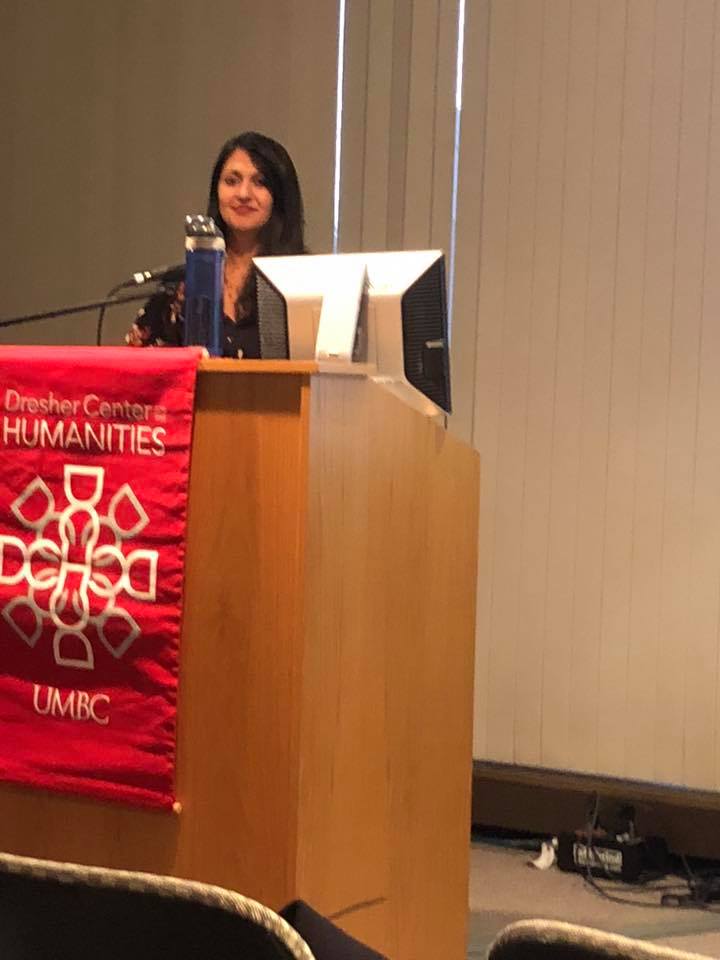
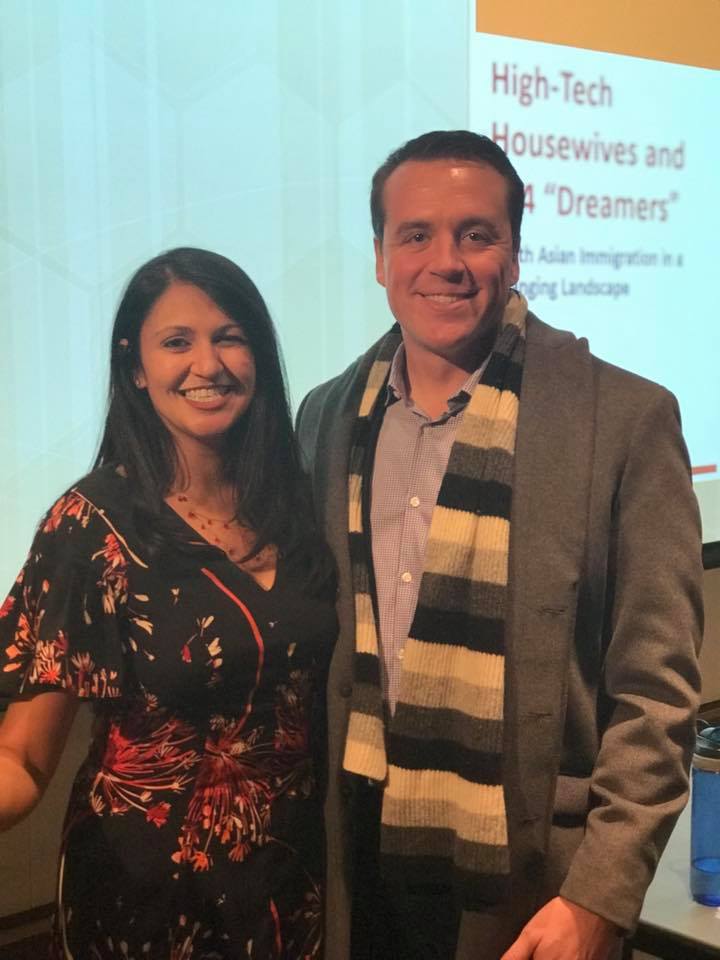
Feature in UMBC News
Check out this write up about my upcoming book talk at UMBC!

Amy Bhatt shines light on gender and immigration policy in new book High-Tech Housewives
Policy & Society 10:30 am
“I am interested in the human face of policy,” says UMBC’s Amy Bhatt. “I want to share the personal narratives of immigrants few people hear about—highly skilled workers—and help us understand their experience as they face questions of citizenship, belonging, and community.”
Bhatt, an associate professor of gender and women’s studies, and affiliate associate professor in the language, literacy, and culture, and Asian studies programs, has made headlines nationwide by providing research-based expertise on contemporary U.S. immigration policy. She’s bringing the conversation to UMBC through a Humanities Forum talk on her new book, High-Tech Housewives: Indian IT Workers, Gendered Labor, and Transmigration, on Wednesday, December 5, 2018, 4 – 5:30 p.m., in the Albin O. Kuhn Library Gallery.
“Now more than ever, Professor Bhatt’s research is crucial in helping all of us understand the everyday impact of high-skilled immigration,” shares Jessica Berman, professor of English and director of the Dresher Center for the Humanities, which organizes the Humanities Forum. “Thriving academic research communities are enriched by the knowledge and expertise highly-skilled international faculty, staff, and students bring and share.”
H-1B and H-4 visa programs allow skilled workers from South Asian countries to travel with their families to the U.S. to fill needed temporary positions in corporations, hospitals, and universities. Bhatt explains, “U.S. consumers depend on the global flow of goods and services in the tech, healthcare, and higher education sectors.” She notes, “In a global high-tech economy it is important to acknowledge the value that immigrants bring to our lives and how they are being threatened by immigration policy.”
Bhatt’s work focuses on gender as an important and understudied factor at the intersection of immigration law and global economy. She notes that 85 percent of H-1B visa holders are men. Their spouses can join them in the U.S. under the H-4 visa program, but, even if those spouses are themselves highly skilled, they are unable to apply their expertise in the paid workforce. Instead, they often become “high-tech housewives” due to the constraints of immigration law, rather than choice.
“People tend to think about H-1B visa issues as problems that only affect men,” failing to consider the often highly skilled spouses who come with them to the U.S.,” says Bhatt.
“Women’s abilities to migrate—flexibility in foregoing their own careers at times, and work to manage family demands, cultural transmission, connection to home country, and building local relationships—allow their spouses to take highly skilled jobs in the United States,” explains Bhatt. Her research explores how the current visa system not only limits the employment of highly skilled women, but also impacts their identities and day-to-day experiences in other significant ways.
In addition to her recent book, Amy Bhatt has recently published three widely read articles on U.S. and international policy issues and gender through The Conversation, including “Why Trump’s plan to forbid spouses of H-1B visa holders to work is a bad idea.” In that article, Bhatt writes, “H-4 women face a triple burden if they are able to start working again, particularly in technology: race, gender and long gaps in their resumes.”
Whether sharing her work through academic publications or news media like the Seattle Times, Bhatt’s overall message is the same.
“It is an urgent call for all of to pay attention,” she says, “to changes in immigration trends, globalization, how businesses are thinking about labour pools, and how we think of gender and women in the family in these economic and political processes.”
Quoted in KQED Santa Clara Public Radio story
Check out this piece from KQED Santa Clara County this morning on the H-4 EAD issue, which features a nice quote from High-Tech Housewives!
Spouses of H-1B Visa Holders Could Soon Lose the Right to Work in the U.S.
“Leaving aside her concerns as a mother, what happens if Bhai is forced to sit out during her most productive professional years? “H-4 women face a triple burden if they are able to start working again, particularly in technology: race, gender and long gaps in their resumes,” writes associate professor Amy Bhatt at the University of Maryland, Baltimore County, author of “High-Tech Housewives: Indian IT Workers, Gendered Labor, and Transmigration.”“
Global Effects of High-Skilled Immigration
My article for AsiaGlobal Online, a digital journal published by the Asia Global Institute (AGI) at The University of Hong Kong, was published today!
Check out the full article here: Global Effects of High-Skilled Migration
“The free flow of labor across national borders has been one of the defining facets of globalization. In recent years, concerns over the effects of increased migration on domestic workforces have led political leaders to consider tightening borders, dramatically altering patterns of human movement. In Asia, this could reverse the brain drain….”
